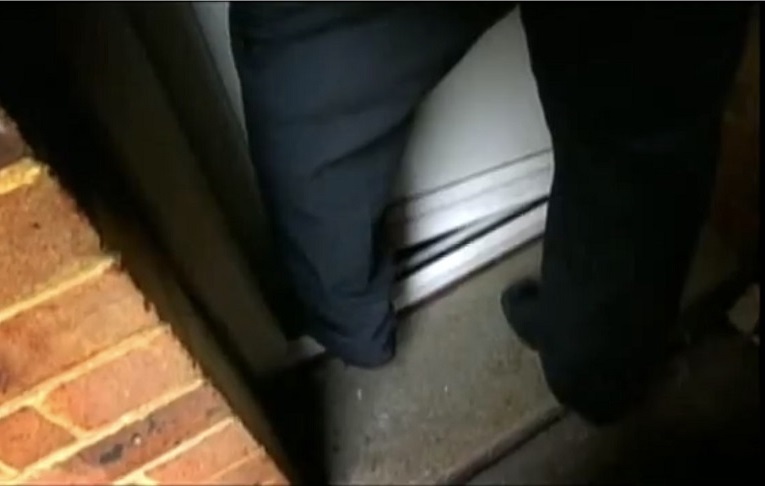Bailiff Jammed His Foot In The Door
A bailiff using force against a door or the person behind it commits an offence under section 39 of the Criminal Justice Act 1988 and section 47 of the Offences Against the Person Act 1861, which is also in breach of Paragraphs 18(a)(1)(d), 24(2), and 31(5) of Schedule 12 of the Tribunals Courts and Enforcement Act 2007 and revokes everything that follows.
Under Civil Procedure Rule 84.13, you can sue for this breach and make a Personal Injury Claim.
Paragraph 18(a)(1)(d) specifies that bailiffs recovering unpaid traffic contravention debts are not permitted to enter homes using reasonable force.

If you find yourself trapped behind a door with a bailiff's boot wedged in it:
Rai & Rai v Birmingham City Council [1993]
Before Mr. J P Kieran, deputy stipendiary magistrate, Birmingham Magistrates' Court
The complainants owed the city council unpaid Community Charge (Poll Tax) amounts of £252.93, £302.84, and £315.50 for the years 1990-93. Liability orders were issued, and a bailiff company was engaged to enforce them.
On 21 July 1993, two bailiffs visited the home of the Rai family, where Mrs Rai and her 17-year-old daughter, Mrs Bassi, were present.
Her local office had advised Mrs Rai to deny entry to the bailiffs, and she complied by standing in the doorway, holding the door slightly open, and refusing them entry.
The bailiffs requested to use her phone, but she falsely claimed she did not have one. As she was about to step outside to speak with them, one bailiff placed his foot in the door, and both forced their way in, pushing her aside.
The stipendiary magistrate ruled the levy was irregular and ordered the return of the goods removed. The forced entry and taking control of third-party property were illegal and could have made the distraint trespass ab initio, although no damages were awarded.
Vaughan v McKenzie [1969] 1 QB 557
On 22 May 1968, bailiffs visited Ms Vaughan's house but found it unoccupied. They waited until Ms Vaughan returned with her child.
Outside the front door, the bailiff informed Ms Vaughan that they were there to levy execution on her goods. The bailiff did not present a warrant, but Ms Vaughan was fully aware they were bailiffs and understood the purpose of their visit. She refused to allow them entry.
As Ms Vaughan and her child entered the house and tried to shut the door, one bailiff wedged his foot in the doorway and pushed against the door while Ms Vaughan resisted from the other side to keep him out.
The bailiffs then forced the door open and entered the house. In response, Ms Vaughan picked up a milk bottle and struck one of the bailiffs on the head, causing a one-inch cut that required three stitches.
The court opined
The bailiff was not justified in gaining entry to execute a warrant by pushing open a door which Ms Vaughan against them and that they were accordingly trespassers and in any event, the bailiffs not having shown or read the warrant to Ms Vaughan, were not acting in the execution of their duty.
Sir Alexander Cockburn CJ said:
"The officer had no right to force his way into the respondent's house, which was the respondent's castle. Whether the officer was known or not this was illegal, and therefore he was not in the execution of his duty at all when he was assaulted. He seems to have provoked the assault. I think as he was clearly not in the execution of his duty our judgment must he for the respondent."
Winn LJ:
"I agree. It seems to me that the essential criterion in any such situation is whether the householder has left a means of entrance available for me without the employment of any degree of force. As Lord Parker J has said, this is a case where a foot was interposed between the door post and the door itself. In the other two cases arms were thrust in, but it is perfectly clear that whilst in those cases some force was used, in neither of them was entrance being sought vi et armis"

